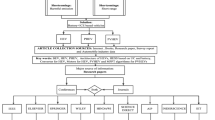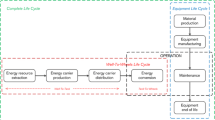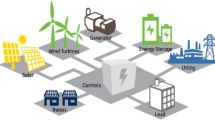Abstract
The energy management strategy is an important part of a hybrid electrical vehicle design. It is used to improve fuel economy and to sustain a proper battery state of charge by controlling the power components while satisfying various constraints and driving demands. However, achieving an optimal control performance is challenging due to the nonlinearities of the hybrid powertrain, the time varying constraints, and the dilemma in which controller complexity and real-time capability are generally conflicting objectives. In this paper, a real-time capable cascaded control strategy is proposed for a dual-mode hybrid electric vehicle that considers nonlinearities of the system and complies with all time-varying constraints. The strategy consists of a supervisory controller based on a non-linear model predictive control (MPC) with a long sampling time interval and a coordinating controller based on linear model predictive control with a short sampling time interval to deal with different dynamics of the system. Additionally, a novel data based methodology using adaptive Markov chains to predict future load demand is introduced. The predictive future information is used to improve controller performance. The proposed strategy is implemented on a real test-bed and experimental trials using unknown driving cycles are conducted. The results demonstrate the validity of the proposed approach and show that fuel economy is significantly improved compared with other methods.
Similar content being viewed by others
References
Bayindir K Ç, Gözüküçük M A, Teke A. A comprehensive overview of hybrid electric vehicle: Powertrain configurations, powertrain control techniques and electronic control units. Energy Conv Manage, 2011, 52: 1305–1313
Kim J, Kim T, Min B, et al. Mode control strategy for a two-mode hybrid electric vehicle using electrically variable transmission (EVT) and fixed-gear mode. IEEE Trans Veh Tech, 2011, 60: 793–803
Qin K J, Wang E H, Zhao H, et al. Development and experimental validation of a novel hybrid powertrain with dual planetary gear sets for transit bus applications. Sci China Tech Sci, 2015, 58: 2085–2096
Sciarretta A, Guzzella L. Control of hybrid electric vehicles. IEEE Control Syst Mag, 2007, 27: 60–70
Liu J M, Peng H. Modeling and control of a power-split hybrid vehicle. IEEE Trans Contr Syst Tech, 2008, 16: 1242–1251
Xiang C, Wang Y, Hu S, et al. A new topology and control strategy for a hybrid battery-ultracapacitor energy storage system. Energies, 2014, 7: 2874–2896
Castaings A, Lhomme W, Trigui R, et al. Comparison of energy management strategies of a battery/supercapacitors system for electric vehicle under real-time constraints. Appl Energy, 2016, 163: 190–200
Sorrentino M, Rizzo G, Arsie I. Analysis of a rule-based control strategy for on-board energy management of series hybrid vehicles. Control Eng Practice, 2011, 19: 1433–1441
Zhang S, Xiong R. Adaptive energy management of a plug-in hybrid electric vehicle based on driving pattern recognition and dynamic programming. Appl Energy, 2015, 155: 68–78
Li H Z, Li L, He L, et al. PID plus fuzzy logic method for torque control in traction control system. IntJ Automot Tech, 2012, 13: 441–450
Hemi H, Ghouili J, Cheriti A. A real time fuzzy logic power management strategy for a fuel cell vehicle. Energy Conv Manage, 2014, 80: 63–70
Sun Y, Chen Z, Yan B J, et al. A learning method for energy optimization of the plug-in hybrid electric bus. Sci China Tech Sci, 2015, 58: 1242–1249
Xia C Y, Zhang C. Real-time optimization power-split strategy for hybrid electric vehicles. Sci China Tech Sci, 2016, 59: 814–824
Shams-Zahraei M, Kouzani A Z, Kutter S, et al. Integrated thermal and energy management of plug-in hybrid electric vehicles. J Power Sources, 2012, 216: 237–248
Zhang Y H, Jiao X H, Li L, et al. A hybrid dynamic programming-rule based algorithm for real-time energy optimization of plug-in hybrid electric bus. Sci China Tech Sci, 2014, 57: 2542–2550
Chen Z, Xia B, You C, et al. A novel energy management method for series plug-in hybrid electric vehicles. Appl Energy, 2015, 145: 172–179
Chen S Y, Hung Y H, Wu C H, et al. Optimal energy management of a hybrid electric powertrain system using improved particle swarm optimization. Appl Energy, 2015, 160: 132–145
Zheng C, Xu G, Xu K, et al. An energy management approach of hybrid vehicles using traffic preview information for energy saving. Energy Conv Manage, 2015, 105: 462–470
Xiong W. Series-parallel hybrid vehicle control strategy design and optimization using real-valued genetic algorithm. Chin J Mech Eug, 2009, 22: 862–868
Chen Z, Mi C C, Jun Xu C C, et al. Energy management for a powersplit plug-in hybrid electric vehicle based on dynamic programming and neural networks. IEEE Trans Veh Tech, 2014, 63: 1567–1580
Li L, Yang C, Zhang Y H, et al. Correctional DP-based energy management strategy of plug-in hybrid electric bus for city-bus-route. IEEE Trans Veh Tech, 2015, 64: 2792–2803
Chasse A, Sciarretta A. Supervisory control of hybrid powertrains: An experimental benchmark of offline optimization and online energy management. Control Eng Pract, 2011, 19: 1253–1265
Unger J, Kozek M, Jakubek S. Nonlinear model predictive energy management controller with load and cycle prediction for non-road HEV. Control Eng Pract, 2015, 36: 120–132
Laldin O, Moshirvaziri M, Trescases O. Predictive algorithm for optimizing power flow in hybrid ultracapacitor/battery storage systems for light electric vehicles. IEEE Trans Power Electron, 2013, 28: 3882–3895
He L, Shen T, Yu L, et al. A model-predictive-control-based torque demand control approach for parallel hybrid powertrains. IEEE Trans Veh Tech, 2013, 62: 1041–1052
Zhang J, Shen T. Real-time fuel economy optimization with nonlinear MPC for PHEVs. IEEE Trans Contr Syst Tech, 2016, 24: 2167–2175
Borhan H, Vahidi A, Phillips A M, et al. MPC-based energy management of a power-split hybrid electric vehicle. IEEE Trans Contr Syst Tech, 2012, 20: 593–603
Sun C, Hu X, Moura S J, et al. Velocity predictors for predictive energy management in hybrid electric vehicles. IEEE Trans Contr Syst Tech, 2015, 23: 1197–1204
Li L, You S, Yang C, et al. Driving-behavior-aware stochastic model predictive control for plug-in hybrid electric buses. Appl Energy, 2016, 162: 868–879
Bender F A, Kaszynski M, Sawodny O. Drive cycle prediction and energy management optimization for hybrid hydraulic vehicles. IEEE Trans Veh Tech, 2013, 62: 3581–3592
Wang W, Xiang C, Liu H, et al. A model-predictive-control-based power management strategy for a power-split electromechanical transmission. Proc Inst Mech Eng D-J Auto Eng, 2016: 1–15
He H, Xiong R, Guo H, et al. Comparison study on the battery models used for the energy management of batteries in electric vehicles. Energy Conv Manage, 2012, 64: 113–121
Fekri S, Assadian F. The role and use of robust multivariable control in hybrid electric vehicle energy management-Part II: Application. In: Proceedings of IEEE International Conference on Control Applications. Dubrovnik: IEEE, 2012. 317–322
Liu Y H, Li T, Yang Y Y, et al. Estimation of tire-road friction coefficient based on combined APF-IEKF and iteration algorithm. Mech Syst Signal Process, 2017, 88: 25–35
Ma B, Liu Y, Gao Y, et al. Estimation of vehicle sideslip angle based on steering torque. Int J Adv Manuf Tech, 2016
Brockwell P J, Davis R A. Time Series: Theory and Methods. New York: Springer, 1998
Author information
Authors and Affiliations
Corresponding author
Rights and permissions
About this article
Cite this article
Xiang, C., Ding, F., Wang, W. et al. MPC-based energy management with adaptive Markov-chain prediction for a dual-mode hybrid electric vehicle. Sci. China Technol. Sci. 60, 737–748 (2017). https://doi.org/10.1007/s11431-016-0640-2
Received:
Accepted:
Published:
Issue Date:
DOI: https://doi.org/10.1007/s11431-016-0640-2




